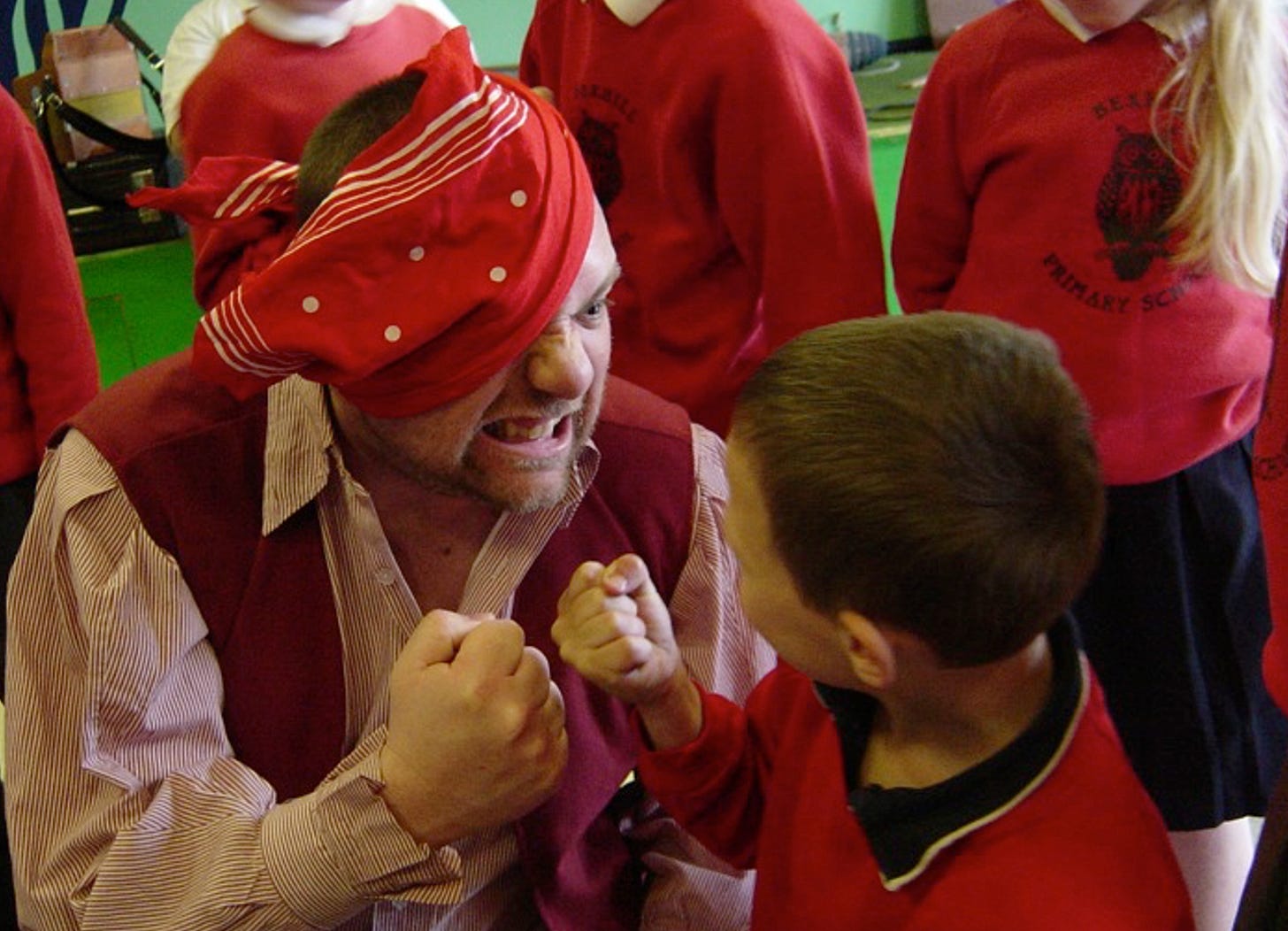Ever wish you could transport your students into a realm where learning comes alive? That's exactly what Dramatic Enquiry does!
This innovative approach combines the philosophical inquiry of Philosophy for Children (P4C) with the dramatic exploration of process drama. It's a powerful fusion that creates a dynamic and engaging learning environment.
Back in 2007, during a SAPERE training, I was introduced to the Philosophy for Children concept. As the ‘then’ artistic director of Cap-a-Pie, I immediately teamed up with my colleague Annie McCourt, and we realised the potential synergy between P4C and process drama. Thus, Dramatic Enquiry was born!
So, What Exactly Is Dramatic Enquiry?
Imagine your students taking on the roles of experts tasked with solving complex ethical dilemmas. Through role-play and dramatic scenarios, they'll grapple with big ideas, justify their opinions, and make tough choices, all while developing critical thinking, empathy, and collaboration skills.
It's like a real-life choose-your-own-adventure story, but with a philosophical twist!
The Role of Process Drama
At the heart of Dramatic Enquiry is process drama, a method where both students and teachers work in and out of role to explore various scenarios and issues. Unlike traditional drama, process drama focuses on the journey rather than the end product. It's all about the experience and the learning that happens along the way.
Process drama allows students to immerse themselves in fictional worlds, collaboratively problem-solve, and explore aspects of the human condition through multiple, improvised episodes. This method encourages deep engagement and helps students develop a range of skills, including empathy, critical thinking, and social intelligence.
Linking P4C and Process Drama
The link between P4C and process drama lies in their shared emphasis on developing essential skills, fostering social learning, exploring multiple perspectives, providing clear structures, and facilitating inclusive activities.
Both approaches create environments where students can engage in meaningful dialogues, collaborate with peers, and consider diverse viewpoints. They promote social learning by creating ‘communities of inquiry’ where students can share ideas, listen to others, and collectively construct knowledge.
Importantly, while recognising the significant influence of Dorothy Heathcote's Mantle of the Expert approach in shaping process drama, the link between P4C and process drama extends beyond this specific technique. Heathcote's work demonstrated the power of role-playing and imagined contexts in facilitating meaningful learning, which aligns with the principles of both P4C and process drama.
Imagined Contexts and Scenarios
In Dramatic Enquiry, we often use imagined contexts to captivate students' imaginations and challenge their thinking. These contexts provide a safe yet exciting space for students to explore complex issues, develop empathy, and engage in critical thinking. They allow students to step out of their everyday experiences and into worlds where they can experiment, make mistakes, and learn in a deeply immersive way.
The best part? Dramatic Enquiry creates an inclusive, collaborative learning environment where students of all abilities can shine. It's a true celebration of imagination, enquiry, and the power of storytelling in education.
So, are you ready to embark on a dramatic adventure with your students? Stay tuned for more tips, resources, and real-life examples of Dramatic Enquiry in action. This is just the beginning of an exciting journey!




